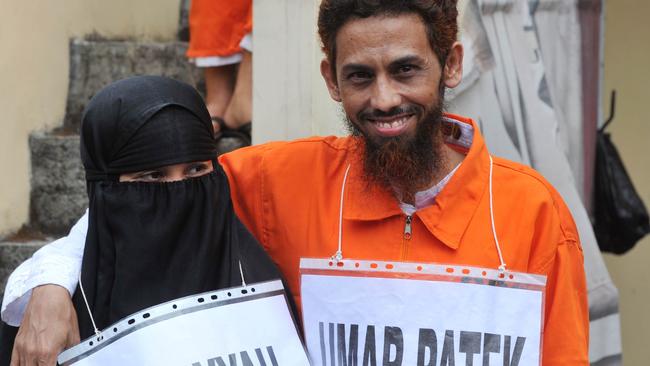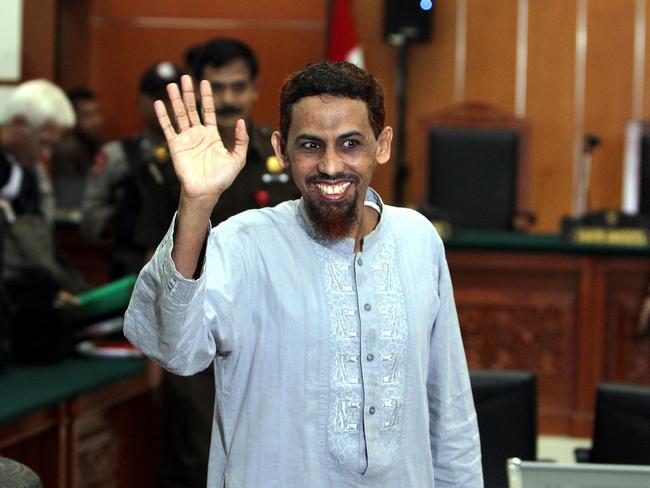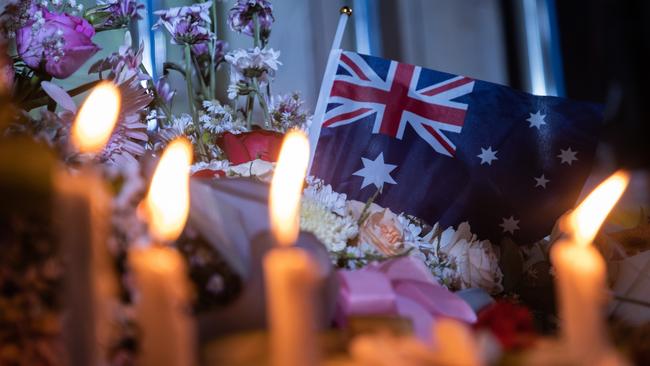Bali bombmaker Umar Patek to be monitored by his wife as part of conditions of early release
The chief of the parole board that agreed to free Umar Patek early has assured Australia the 52-year-old will be closely monitored.
World
Don't miss out on the headlines from World. Followed categories will be added to My News.
Freed Bali bomber Umar Patek has signed an oath of allegiance to the State of Indonesia but it will be his wife he will answer to if the convicted al-Qa’ida terrorist breaches any condition of his early jail release.
Speaking exclusively to News Corp Australia, the Surabaya Parole Board Chief Arif Rahman moved swiftly to assure Australia the 52-year-old would be closely monitored.
He said the Parole Board was specifically working with the National Counter-terrorism Agency (BNPT) to monitor Patek who would be required to report once a week and undertake a “mentoring” program until 2030.

He had already completed a deradicalisation program that culminated in making Islamic bay’ah, swearing allegiance to Indonesia and renouncing all others; a big deal in Indonesian Islamic culture.
Arif revealed Patek – who was convicted of making the explosives used in the 2002 Bali bombings that killed more than 200 people including 88 Australians – would also be monitored by his wife Ruqayyah binti Husein Luceno who was declared his guarantor.

The Philippines-born woman, who only got Indonesian citizenship in November 2019, signed to be his guarantor of good behaviour and renouncing of all terror and would be in as much trouble as he would be if he committed any crimes.
Ruqayyah – who was previously convicted and sentenced to two years jail for giving false statements to obtain a passport in a false name – was vetted to be guarantor by the Parole Board which dispatched officers to her Surabaya house prior to his release and interviewed all members of the family.
“We do the research based on the request from prison. The research was conducted by interviewing the convicted (Patek) and the family or guarantor,” Mr Arif said.

“He should follow all the provisions, including present and give report to the parole board, and get guidance from the parole officer. He should not commit any crime during his parole, including spreading radical teachings.”
Asked what would happen if it was found Patek had reconnected with al-Qa’ida teachings, Mr Arif was emphatic.
“For sure, we will revoke his parole and send him back to the prison,” he said.
Patek, who had shown no remorse during his trial after his decade on the run in Pakistan came to an end in 2011, was only half way through his 20-year sentence for his role in the Bali bombings when he was released early on Wednesday.
No family members came to collect him from Porong Jail in East Java and he was escorted out by the National Police’s counter-terrorism Squad, known as Densus 88.
The Albanese government had raised concerns with the Indonesian government over the release.

Critically, concerns have been raised that Patek could boost his notoriety after release.
Prime Minister Anthony Albanese had said he had nothing but “contempt” and disgust for Patek’s actions and knew his early release would only renew distress and trauma for the victims’ grieving families.
Energy Minister Chris Bowen went a step further and said he was “horrified” by the release.
“We do understand Indonesia’s legal system is different to ours and we have to respect that, but at the same time we have to make strong representations to the Indonesian government to ensure all the necessary protections and monitoring are in place.” he said.
“This is a terrible man who did terrible things not only to Australians but to Indonesians as well.”
Patek was to be released earlier but the move was delayed until after the Bali bombing 20th anniversary. In August he made a bizarre 20-minute video from prison in which he claimed that he had been opposed to carrying out the attack.
Indonesia’s Law and Human Rights Ministry spokesperson Rika Aprianti said he had “shown changes” to allow him to be under supervised parole.
“He is obliged to follow the office’s guidance and must not commit any violence to keep his parole,” Aprianti said.




